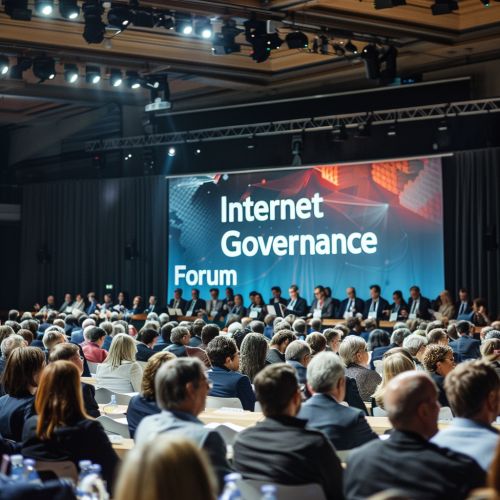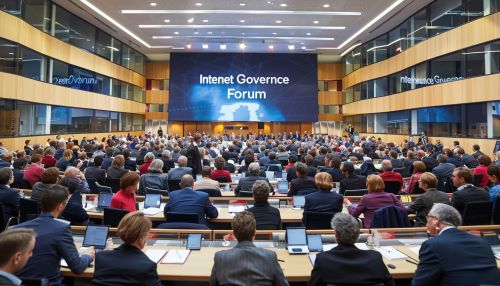Internet Governance Forum
Overview
The Internet Governance Forum (IGF) is a multistakeholder forum for policy dialogue on issues of Internet governance. It brings together all stakeholders in the Internet governance debate, whether they represent governments, the private sector or civil society, including the technical and academic community, on an equal basis and through an open and inclusive process. The establishment of the IGF was formally announced by the United Nations Secretary-General in July 2006. It was first convened in October–November 2006 and has held an annual meeting since then.
History
The origins of the IGF can be traced back to the World Summit on the Information Society (WSIS) process. The mandate for the IGF is contained in the 2005 Tunis Agenda for the Information Society, which was adopted by the second phase of the WSIS held in Tunis in November 2005. The Agenda recognized the need for enhanced cooperation in the field of Internet governance, to enable governments on an equal footing to carry out their roles and responsibilities in international public policy issues pertaining to the Internet.


Structure and Functioning
The IGF is not a decision-making body. Its purpose is to inform and inspire those with policy-making power in both the public and private sectors. At their annual meeting delegates discuss, exchange information and share good practices with each other. The IGF facilitates a common understanding of how to maximize Internet opportunities and address risks and challenges that arise.
Multistakeholder Model
The IGF follows a multistakeholder model of Internet governance, which is one of the key features of the IGF since its inception. This model is seen as the optimal way of discussing Internet governance, as it includes all stakeholders: governments, civil society, the private sector, the technical community, and international organizations.
Meetings
The IGF meetings are held annually and are hosted by different countries around the world. The meetings are organized by a Multistakeholder Advisory Group (MAG), which is appointed by the Secretary-General of the United Nations. The MAG comprises members from governments, the private sector and civil society, including the technical and academic community.
Themes
Each IGF meeting has a different theme, which guides the discussions and workshops. Past themes have included access and diversity, Internet as an engine for growth and sustainable development, and shaping the digital future.
Criticisms and Challenges
Despite its achievements, the IFG has also faced several criticisms and challenges. Some critics argue that the forum is too focused on dialogue and lacks the ability to enforce any decisions or recommendations it makes. Others have raised concerns about the inclusivity and transparency of the process.
